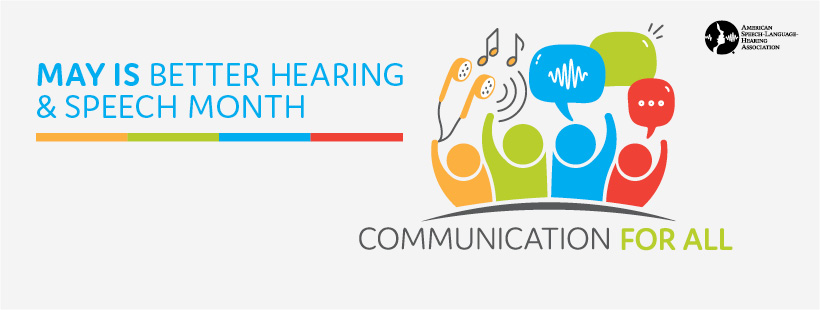
May is Better Hearing & Speech Month (BHSM)! A time when speech-language pathologists (SLPs), audiologists, and those touched by communication and/or swallowing disorders make an extra effort to raise awareness of speech, language, communication, hearing, voice, fluency, and swallowing disorders. Communication disorders are among the most common disabilities among children in the United States.
Just because a child is non-verbal (or minimally verbal), doesn't mean she can't, when given the appropriate tools, develop communication skills.
Just because a child is verbal, doesn't mean that he is able to adequately, effectively, efficiently, or appropriately communicate.
May is also Mental Health Awareness Month. An opportunity to reduce stigma and increase awareness of and discussion about mental health concerns and conditions. According to the National Institute of Mental Health, "research shows that half of all lifetime cases of mental illness begin by age 14" and "changes in the body leading to mental illness may start much earlier, before any symptoms appear."
These statistics were tweeted out by the Royal College of Speech and Language Therapists Northern Ireland (@RCSLTNI) this past week in recognition of Mental Health Awareness Week. We must help all children (including those with mental, emotional, and behavioral issues) communicate effectively, efficiently, and appropriately.
The aim of all awareness campaigns is to not only to educate, increase awareness, and stimulate conversation. It is also to offer support and to promote increased access to treatment. Because treatment is available! And we MUST help ALL of our children communicate. Really communicate - not only about their immediate wants and needs. But also about their innermost thoughts and feelings, their social/emotional well-being. And also about the stories they have to tell and the questions, misunderstandings, problems, difficulties, and confusions they have and need answers to/help with.
We cannot underestimate the power of communication.